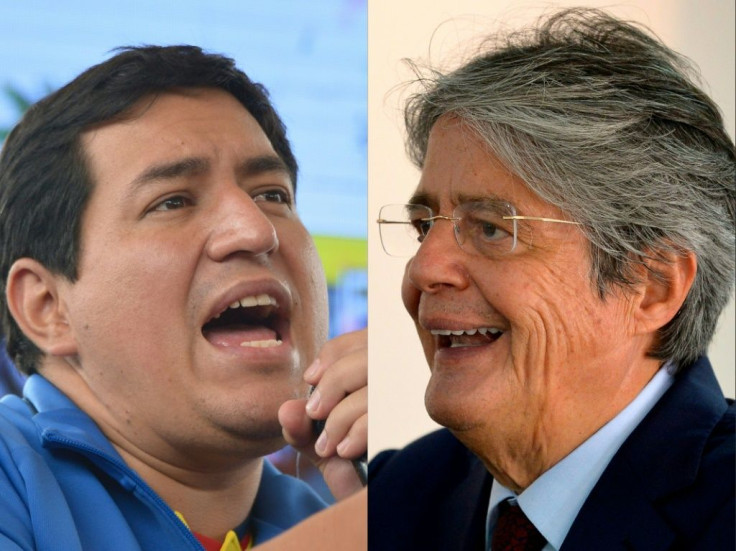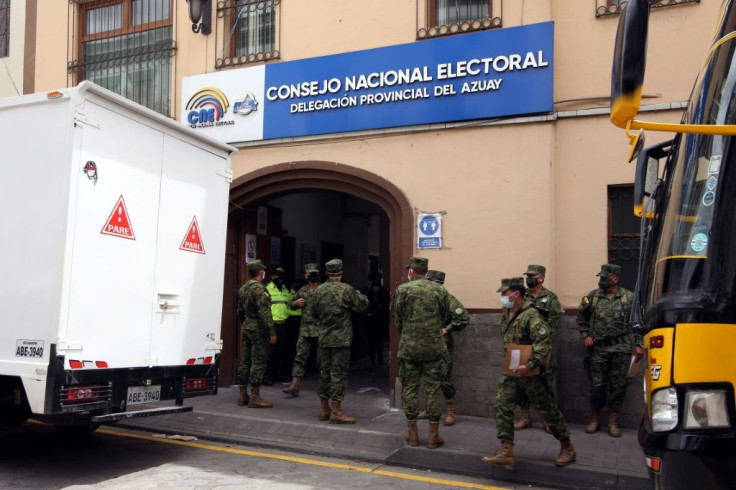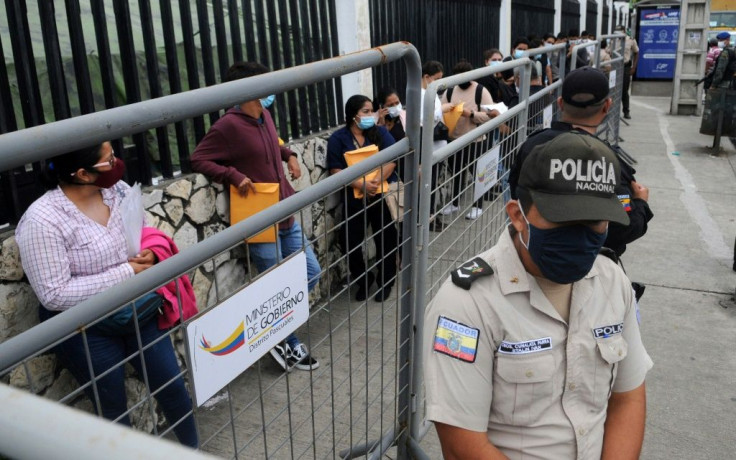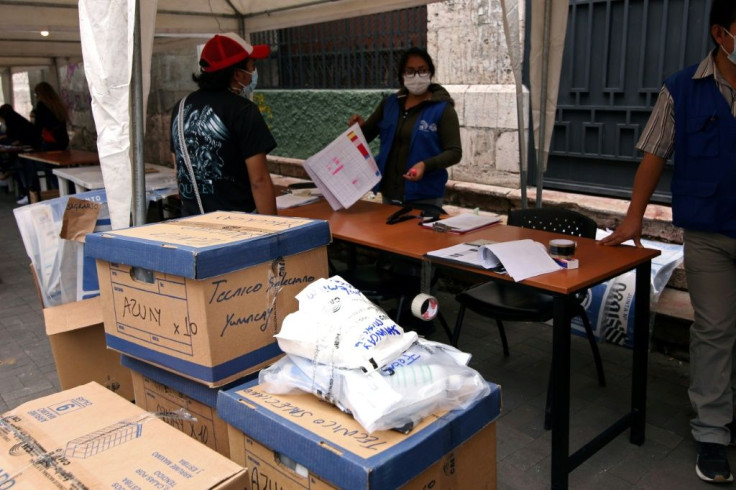Ecuadorans Vote To Choose Between Socialist And Banker For President
Long lines of voters queued up Sunday during Ecuador's general elections in which a socialist and a former banker are vying for leadership of a nation besieged by economic problems.
The country's 13.1 million voters will choose a successor to unpopular socialist President Lenin Moreno and the 137 members of the unicameral congress.
Opinion polls show leftist economist Andres Arauz and conservative Guillermo Lasso the clear frontrunners among 16 candidates, with indigenous rights campaigner Yaku Perez in a distant third place.

The vote takes place as Latin America is battling a second, deadly wave of Covid-19 which has aggravated Ecuador's economic troubles.
Strict health precautions appeared to slow voting, and may have discouraged some from casting their ballots as long lines stretched outside polling stations.
"Instructions have been given by the authorities of the National Electoral Council for this situation to be relaxed to allow the lines to advance," election official Enrique Pita told local media.

Many voters arrived wearing face masks in a nation where the pandemic has claimed 15,000 lives and infected more than 257,000.
Front-runners Arauz and Lasso are both predicting victory for their side.
Arauz, 35, represents the Union of Hope (UNES) coalition of left-wing parties, while businessman Lasso, 65, is from the CREO rightwing movement.

Arauz is a protege of two-time socialist president Rafael Correa, who remains a strong political force in the country despite a graft conviction that sank his hopes of campaigning to become Arauz's deputy.
Arauz has promised to return the country to a socialist path after a four-year, austerity-driven hiatus under Moreno.
Arauz has pledged to disburse $1,000 to a million families during his first month in office, as well as a special tax on the rich.

Running in his third presidential race, free market advocate Lasso has said he would create a million jobs in a year.
He will likely stick to the austerity policies adopted by Moreno, who has had to rein in spending in exchange for International Monetary Fund loans to bolster the oil-producing country's faltering dollar-based economy.
Ecuador is mired in debt as the profits of an oil boom during the Correa presidency dried up under Moreno as the price of crude crashed.
National debt rose from 26 percent of GDP to 44 percent during Moreno's term.
The coronavirus epidemic has piled on the pressure, with some $6.4 billion in losses attributed directly to the health crisis, according to government data.
Ecuador's economy is forecast to contract 8.9 percent in 2020, while unemployment reached 8.6 percent last September -- more than doubling in nine months.
Moreno, his popularity at an all-time low of seven percent, is not seeking reelection.
Given the polling numbers, it is unlikely the first presidential round will be decisive.
To emerge victorious, a candidate must take half of the votes cast, plus one, or at least 40 percent with a 10 percentage point advantage over his nearest rival.
A second round is provisionally scheduled for April 11.
Perez, the first indigenous contender in 15 years, is polling at 12 percent. The remaining 12 candidates are all at under four percent, including the only woman on the list -- Ximena Pena.
© Copyright AFP 2024. All rights reserved.




















